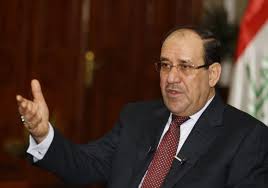Special to WorldTribune.com
WASHINGTON — The Iraqi military and security forces remain ill-equipped to battle the Sunni revolt, a report said.
The Center for Strategic and International Studies asserted that Iraq lacked the army and police manpower to quell the Al Qaida-directed Sunni revolt in the Anbar province.

In a report, the center said forces loyal to the Shi’ite-dominated government in Baghdad were not trained for counter-insurgency missions.
“As a result, the Iraqi security forces and police units remain overstretched and ill equipped to confront transnational terrorist operations, relentless low-level insurgency, violent skirmishes between local militias, and other threats currently operating inside Iraq,” the report, titled “Iraq In Crisis,” said.
Authors Anthony Cordesman and Sam Khazai said the U.S. military withdrawal from Iraq in 2011 imposed a heavy burden on Baghdad’s forces. They said the counter-insurgency threat was exacerbated by Iranian-sponsored Shi’ite militias as well as the authoritarian government of Prime Minister Nouri Al Maliki.
“Moreover, the risk of broader civil war is driven by a range of political crises at the national to the local level, and by the broad range of interacting sectarian and ethnic divisions that affect much of the country,” the report, dated Jan. 6, said.
The report said the Sunni revolt in Anbar represented a “massive popular
reaction” to Al Maliki. Cordesman and Khazai said Al Qaida forces,
particularly the Islamic State of Iraq and the Levant, were joined by Sunnis
who remained loyal to the Baghdad government.
“At least as of early January 2014, it was clear that at least some
Sunnis in the areas revolting against the Maliki regime still remained loyal
to the central government, and that many others want moderate and effective
government, were not religious extremists, and saw AQI/ISIS as a threat
along with the Maliki government,” the report said.
The report determined that Iraq was on the verge of civil war. The war
threatened to pit the dominant Shi’ite community against the Sunnis, along
with an additional conflict between Arabs and Kurds.
“This struggle has been fueled by actions of the Iraqi government that
many reliable sources indicate have included broad national abuses of human
rights and the misuse of Iraqi forces and the Iraqi security services in
ways where the resulting repression and discrimination has empowered Al
Qaida and other extremist groups,” the report said. “As a result, the very
forces that should help bring security and stability have become part of the
threat.”

You must be logged in to post a comment Login